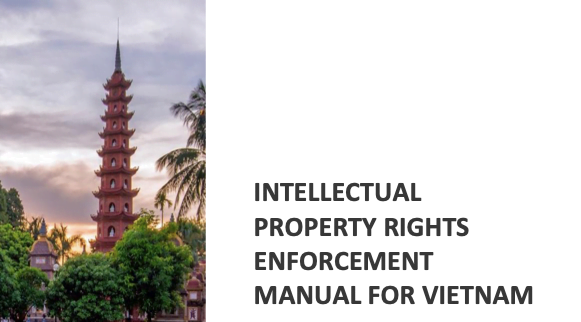
The South-East Asia Financial Sector and Intellectual Property (FSIP) Programme was launched in 2018, under the UK ASEAN Economic Reform Prosperity Fund Programme. The FSIP Programme aims to address market inefficiencies and weaknesses that impede South-East Asia’s (SE Asia) inclusive economic growth. The key objectives of the project are to strengthen the overall business environment as a key enabler for inclusive economic growth which can provide significant positive impact on poverty and inequality across six SE Asian countries including Vietnam. Overall, the project aims to address barriers to growth by improving the global business environment, strengthening government institutions, and encouraging greater global private investment, particularly in developing SE Asian countries. Stronger, more productive SE Asian economies provide greater trade opportunities for international and UK businesses.
One of the work streams under the FSIP Programme is the IP work stream. In many developing countries, market weaknesses typically manifest in a range of obstacles for IP. These include low quantities or low quality of IP creation as well as weak legal systems to protect and enforce IP (e.g. through civil, administrative and criminal IP protection systems). IP system transparency is a challenge in any developing country when the IP systems are not well-tested, clear and robust. Fragile IP systems are often a symptom of a large informal economy.
Through the FSIP Programme, the UK Government is working with the Government of Vietnam in strengthening legal certainty for its IP owners, ensuring that IP acts as a catalyst for innovation and creativity to support economic growth by providing technical advice and capacity building in relation to legal, practical and enforcement issues. The FSIP Programme can help build trade links through IP with UK, other businesses and IP organisations.
Intellectual property (IP) enforcement remains a business concern in Vietnam. The inadequacy of IP enforcement information and resulting lack of transparency is a barrier for foreign investors. This Manual on IP enforcement in Vietnam has been developed for businesses operating or planning to expand in Vietnam. The Manual is published by the British Business Group Vietnam and aims to provide foreign businesses with a picture of how the IP enforcement system works. It includes details of the laws and regulations as well as the IP enforcement procedures in Vietnam. It uses a definition of enforcement that parallels the World Trade Organisation’s Trade Related Aspects of Intellectual Property (TRIPS) Agreement. This means it focuses on trade mark and copyright enforcement procedures – which in common parlance means trade mark counterfeiting and copyright piracy. The types of enforcement systems most commonly used to deal with these two issues are administrative systems (including customs), the criminal and the civil courts. Other forms of IP exist (e.g. patents, designs) but their enforcement is not as straightforward and therefore, is not subject to the scope of this Manual.
FSIP has a parallel focus on Gender and Social Inclusion, so it considers how IP and IP enforcement interacts with this. This Manual includes analysis and data on this relatively novel issue.
The Manual is up to date as of April 30th, 2020. The Manual is for informational purposes only so users of this Manual should take local legal advice on specific cases.
Please kindly find the full manual here